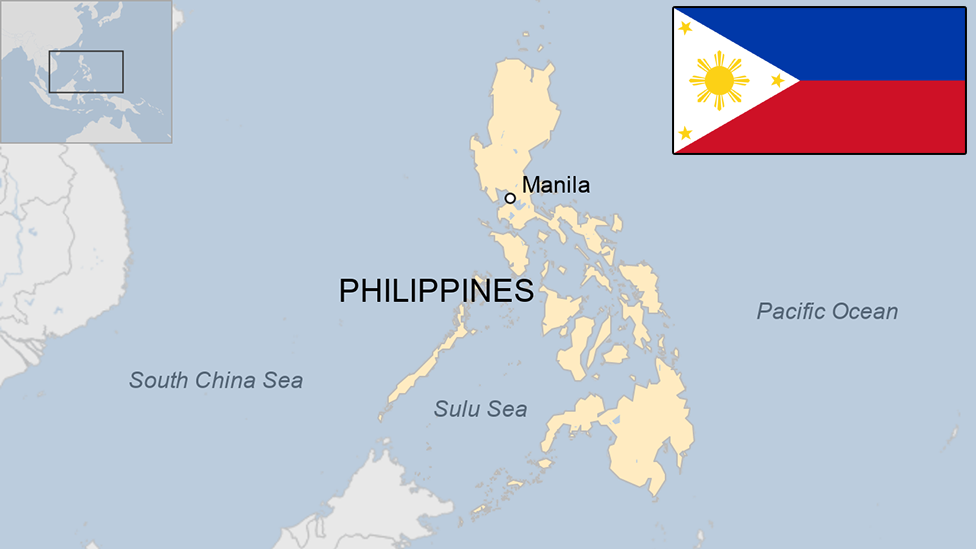Philippines election: Populism, celebrity and ugly realities
- Published
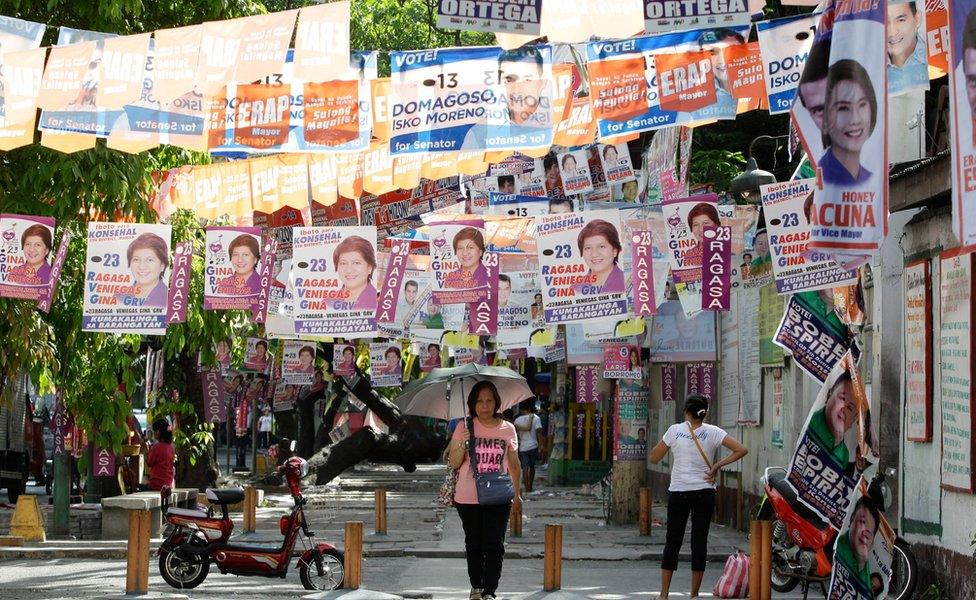
There is anger that the gains of high growth and a stable economy have not been shared equally
As the Philippines prepares for its fifth election since the "People Power" revolution that overthrew dictator Ferdinand Marcos in 1986, the BBC's South East Asia correspondent Jonathan Head asks whether any candidate can address the country's true problems.
If you want to understand the dynamics of this election look away from the flutter of posters, from the noisy campaign trucks and their jaunty songs, and from a bewildering selection of smiling candidates contesting thousands of elected posts.
Look instead at the creaking infrastructure of Manila, the visible slums, the denuded mountainsides and scrappy farms.
The Philippines stands out - in a region that was once a byword for crippling poverty - for its failure to match its neighbours' partial success in reducing inequality.
Official statistics show that poverty has stayed at more or less the same level for the past decade, despite economic growth averaging 6%.
Karishma Vaswani meets three women whose lives reflect the economic changes of the Philippines.
Ask a motor tricycle driver or a day labourer how much the past four elections have changed their lives, and they will nearly all tell you: not one bit. If you look at how they live, you can believe them.
On paper, outgoing President Benigno Aquino has performed well - better, certainly, than his two predecessors.
Foreign direct investment has quadrupled, and the budget deficit has fallen. Spending has increased on infrastructure, schools and rural development. Middle-class Filipinos who have good jobs or businesses feel better off.
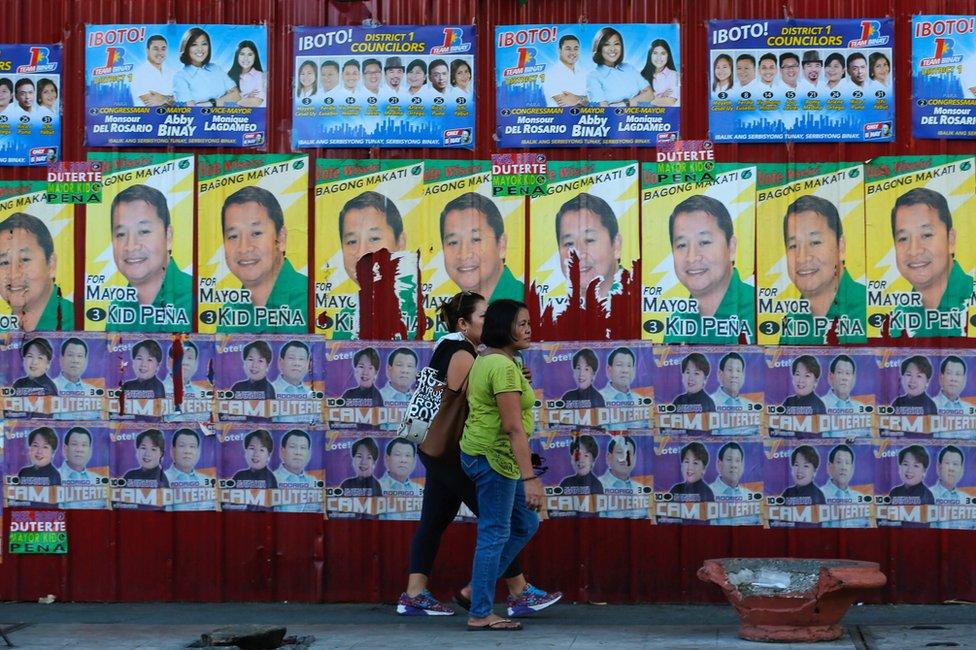
As well as the president and vice-presidential, 12 senators and thousands of local officials are also up for election
The problem is that President Aquino started with the Philippines far behind its neighbours, and the changes he has brought are incremental, rather than revolutionary. Had the constitution allowed it, he might have been able to turn his modest successes into a story alluring enough to win another term of office.
But in a reaction against the monopolisation of power by Marcos in the 1970s and 80s, Mr Aquino's mother, Corazon - who led the movement that overthrew Marcos - also oversaw a new constitution which limited presidents to a single term.
So every six years there is an entirely new slate of contestants. Except they are not really new.

The people go to the polls


An anti-establishment backlash
Mar Roxas, an ally of President Aquino's, is a former minister, a vice-presidential candidate in the last 2010 election, and also the grandson of a former president. By all accounts a decent and capable politician, he is nonetheless a quintessential establishment figure.
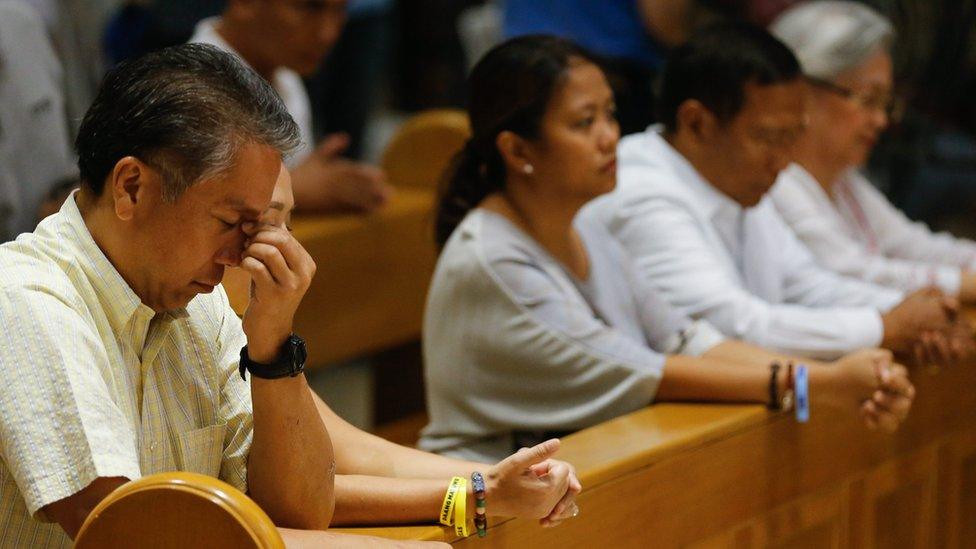
The Church is still an important influence - here Mr Roxas and Mr Binay pray in Manila Cathedral - but less so than it was
Another candidate, Jejomar Binay, is the outgoing vice-president, and is a wealthy former mayor of Manila's financial district, Makati.
Miriam Defensor Santiago ran for president as long ago as 1992, and has also been a tough-minded judge and senator.
The only political novice in this contest is Grace Poe, a first-term senator who is best known for being the adopted daughter of popular actor Fernando Poe.
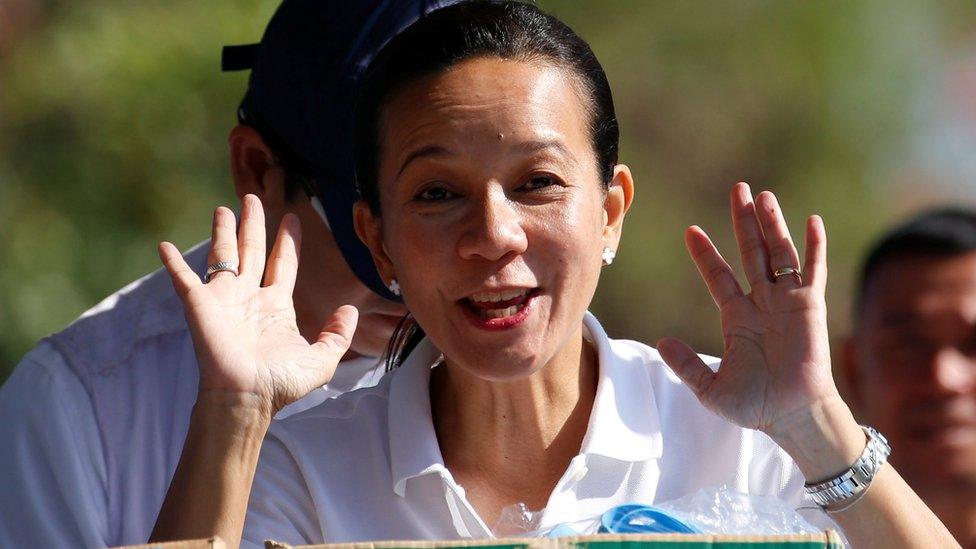
Grace Poe, despite a reformist stance, has been hurt by ties to oligarchs
Rodrigo Duterte is not new to politics either. But as the long-serving mayor of the southern city of Davao, he is an outsider in the cosy world of Manila political families. And his campaign style and language are certainly something very new.
Mr Duterte has scarcely been able to make a campaign speech without threatening to kill someone. In fact he says openly that you need to be willing to kill to be president. He has talked about filling Manila Bay with the 100,000 criminals he says he will kill if he wins the top job, which opinion polls suggest is likely.
Rico Hizon on the Philippine general election
His blunt, often offensive comments have won him legions of fans here.
Perhaps they don't take his threats seriously. Perhaps they love the idea of a lone vigilante gun-slinging his way to justice as seen in the barilan shootout dramas that play all day on Filipino televisions.
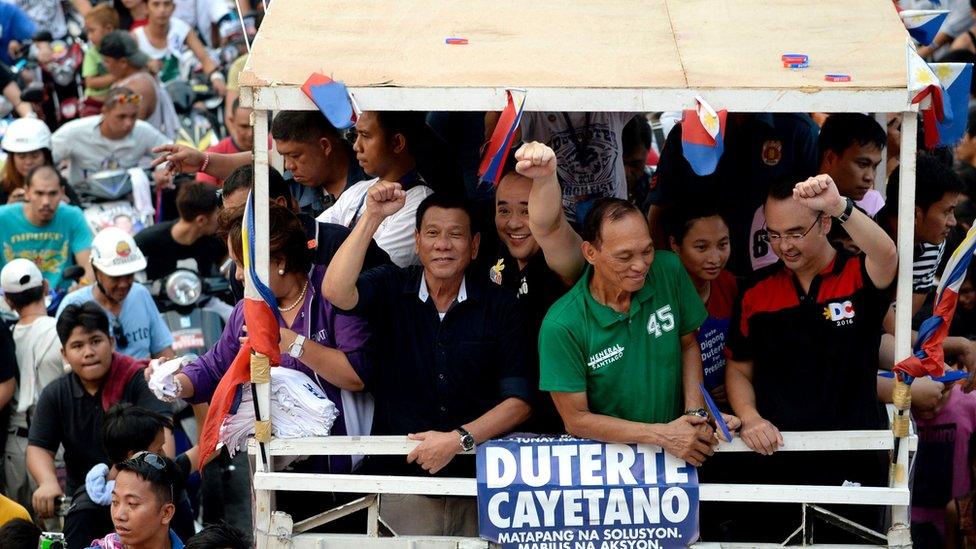
Not a natural diplomat, Mr Duterte has already had spats with Australia, the US and Singapore
Mr Duterte's showcase is the city he has run for the best part of 30 years.
Davao is the third largest city in the country, and, up until the late 1980s it also had one of the highest homicide rates in the world, thanks in large part to the conflict with the communist New People's Army.
The local authorities began arming civilian militias to tackle to communist insurgents, and those militias morphed into shadowy death squads which targeted anyone seen as a threat to public order.
Today, Davao is safe and law-abiding, with a prosperous business district and healthy crime statistics.
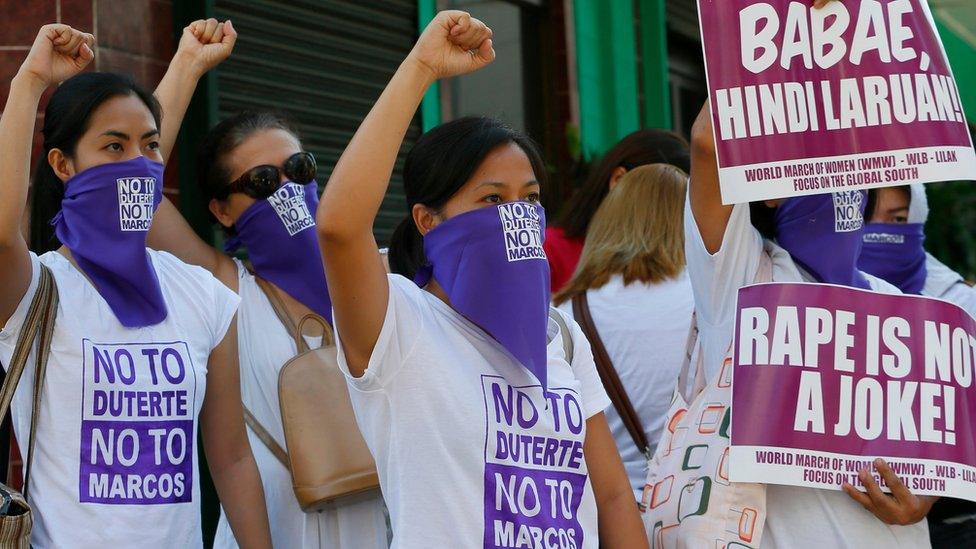
Mr Duterte's jokes about rape and murder have not gone down well with everyone
At an impressive integrated emergency response centre there were housed state-of-the-art rescue vehicles and inside, a long wall covered in screens showing feeds from dozens of high-resolution security cameras around the city.
Committing a crime and getting away with it is hard in Davao - and would you dare when the mayor has threatened to kill you?
In a poorer part of town lives Clarita Aria, who runs a small market stall and lives in a cramped wooden shack behind it. She still weeps as she recalls how, over a period of six years four of her sons, all teenagers, were killed, after being warned by the police.
The thought of Mayor Duterte winning the presidency fills her with sadness. But in much of the city he is celebrated as a hero.
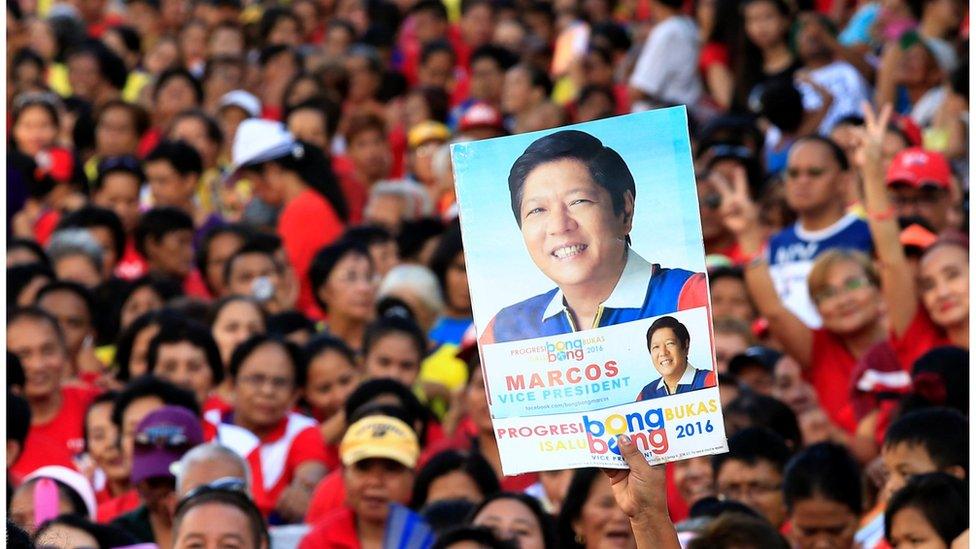
Critics blame a young electorate with no memory of the regime of Ferdinand Marcos, for the political return of his family
At the other end of the Philippines, in Iliocos Norte, Ferdinand Marcos is also feted as a hero and saviour, 30 years after he was overthrown in the first "people power" uprising. Back then, Marcos and his free-spending wife Imelda were vilified as symbols of greed, corruption and repression.
But today, the Marcos museum in his home town of Batac, which glorifies his life and achievements, is crowded with visitors from all over the country.
Many of them are young - more than half of those eligible to vote were not born when Marcos was overthrown. Some came out won over by the melodramatic representation of Marcos's sacrifices they had watched inside, and the viewing they had of his embalmed body lying in state next door.
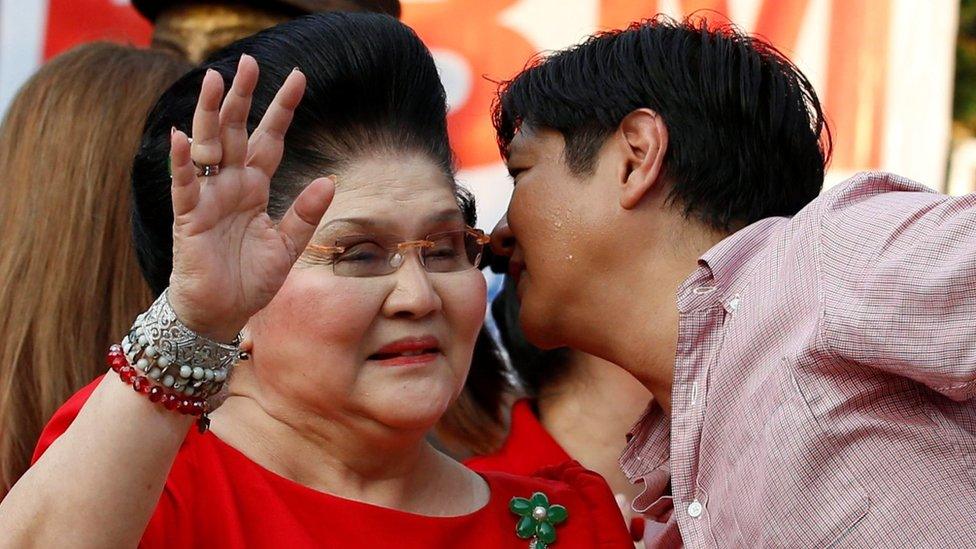
Despite thousands of deaths, Imelda Marcos' late husband is respected by many for big infrastructure projects, high exchange rates, and authoritarian rule
His daughter, Imee, is governor of the province. Even Imelda, who at 86 is in poor health, is running unopposed as a congresswoman.
A host of other Marcoses and their relatives are contesting many of the 240 or so positions up for grabs in the election. And his son Ferdinand Jr, or "Bongbong", has been leading the polls to win the vice-presidency - running a slick social media campaign, which appeals to the young in particular.
In vain have the victims of the older Marcos's martial law, in which thousands were imprisoned and tortured, cried warnings about forgetting the past.
When I asked Bongbong how much of a problem his father's reputation was he laughed: "Quite the opposite - it's a boost", he said.
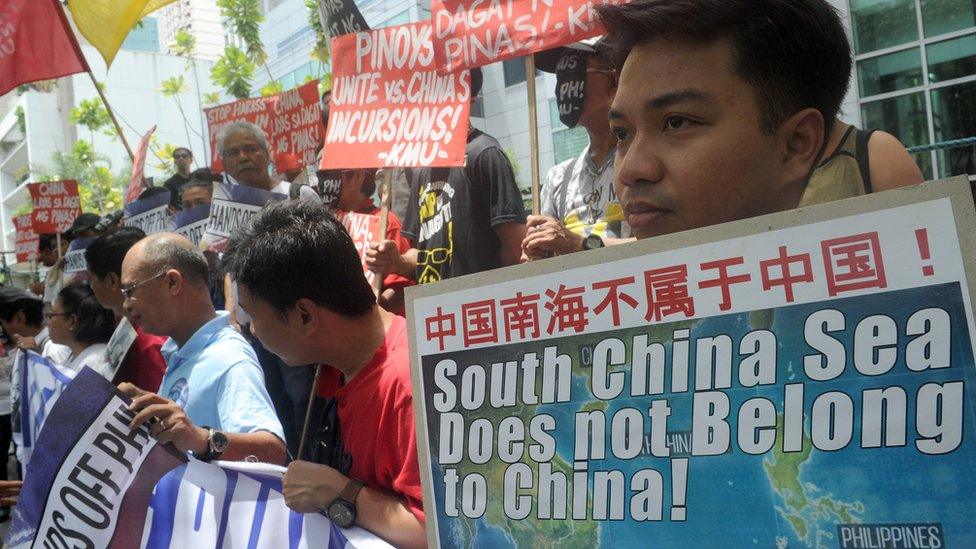
While domestic issues have dominated, the election's foreign policy consequences could be felt as far away as Washington
If the polls are correct, Mr Duterte and Mr Marcos could end up running this country. No-one is sure how they will do it, nor in what state they will leave this country's fragile democracy when they are finished.
But after holding out so much promise when it was born 30 years ago, that democracy has delivered little of substance to most Filipinos, and they cannot be expected to care too much if it is put at risk.
Related topics
- Published5 May 2016
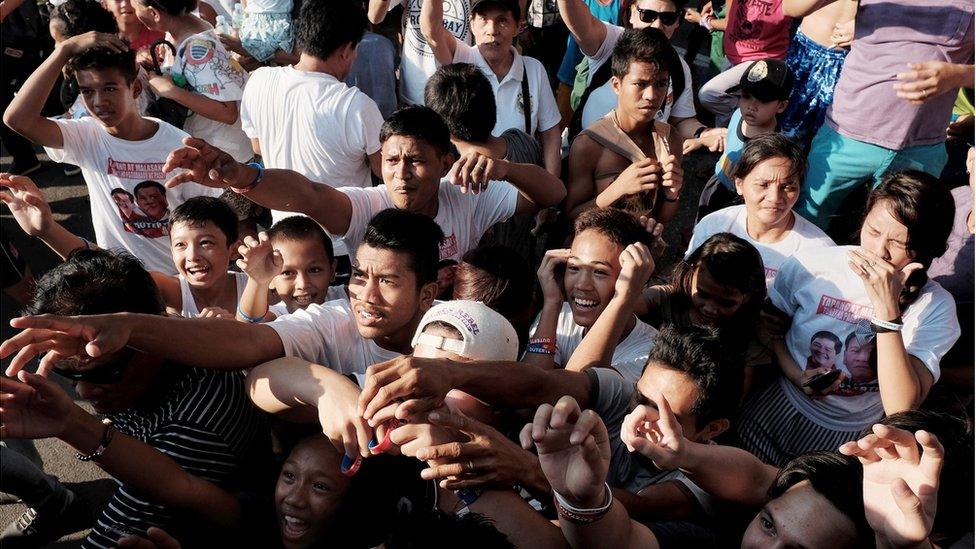
- Published29 April 2016
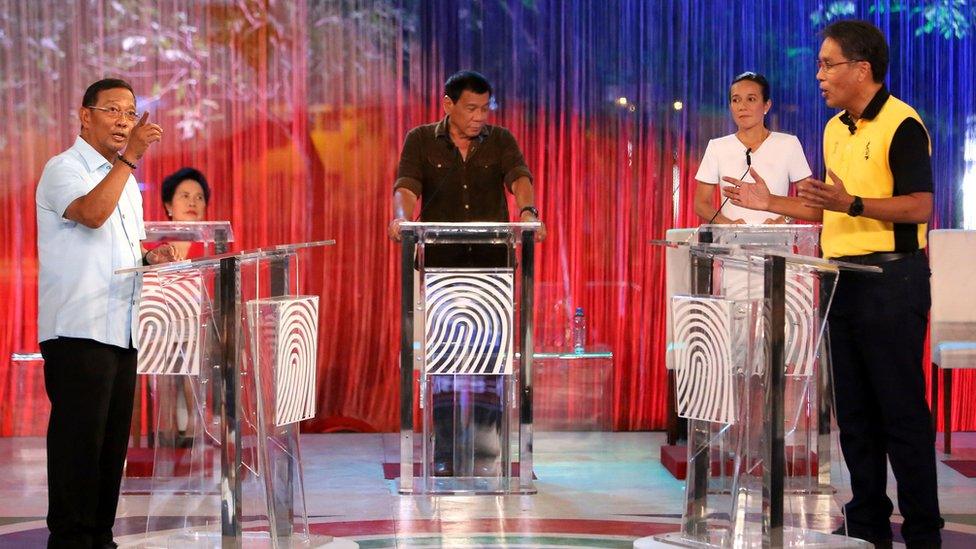
- Published6 May 2016
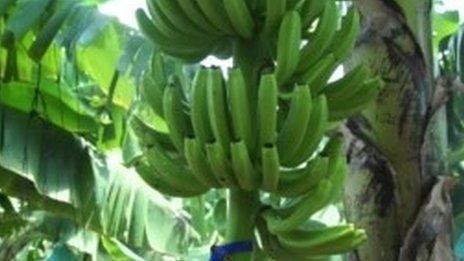
- Published5 May 2016
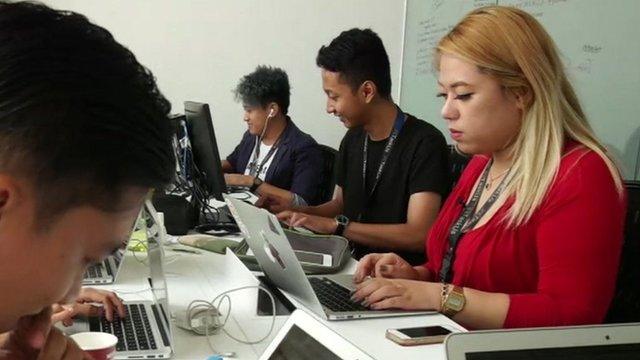
- Published4 May 2016
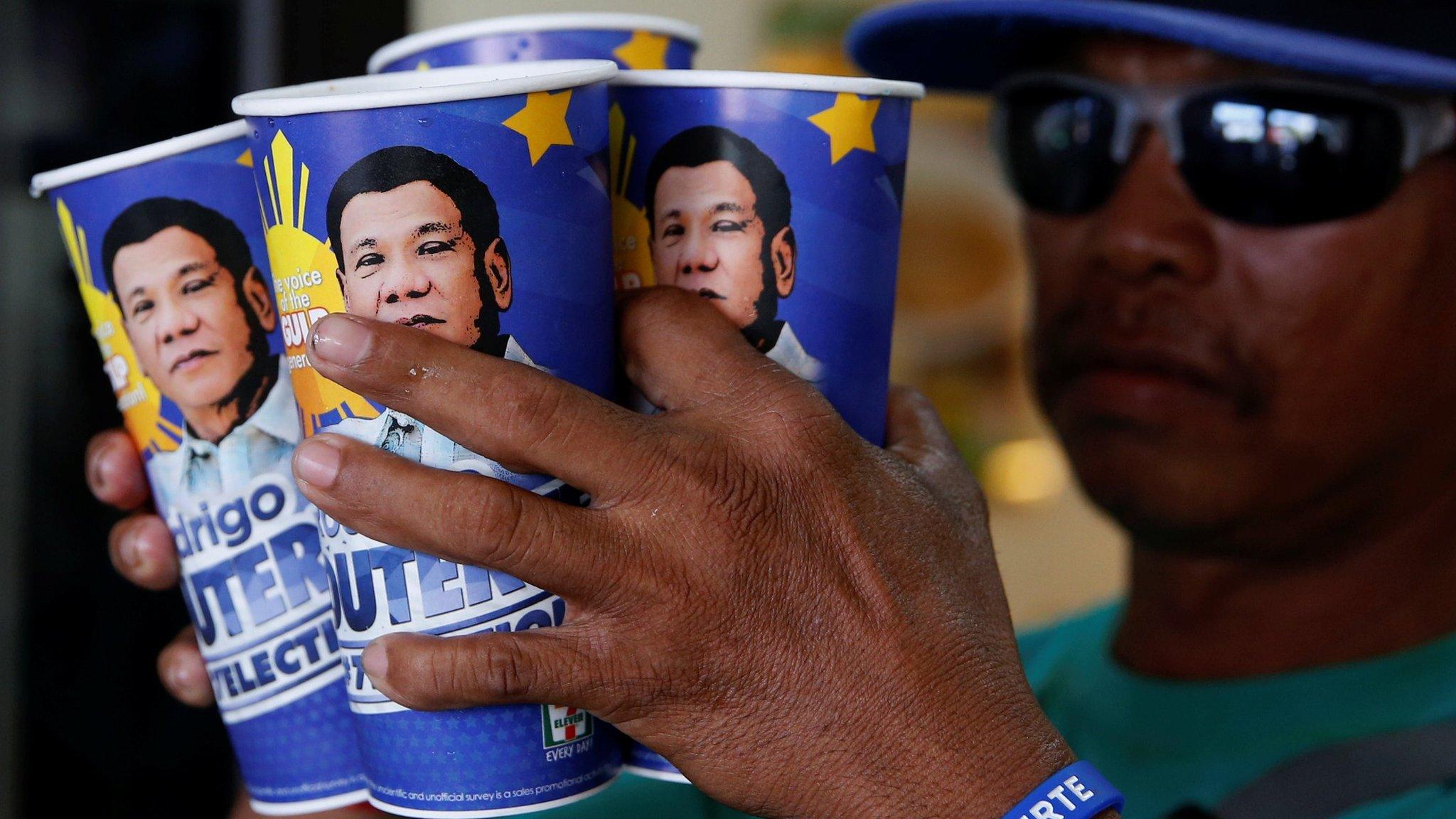
- Published4 May 2016
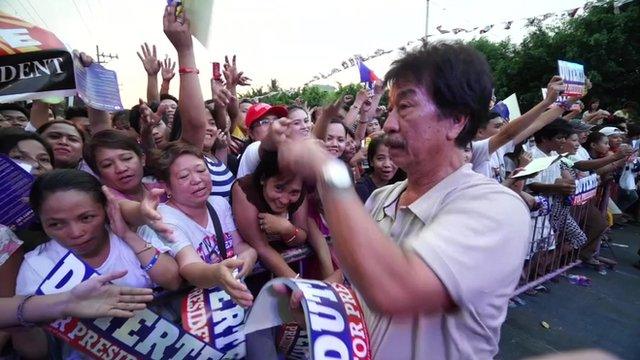
- Published3 May 2016
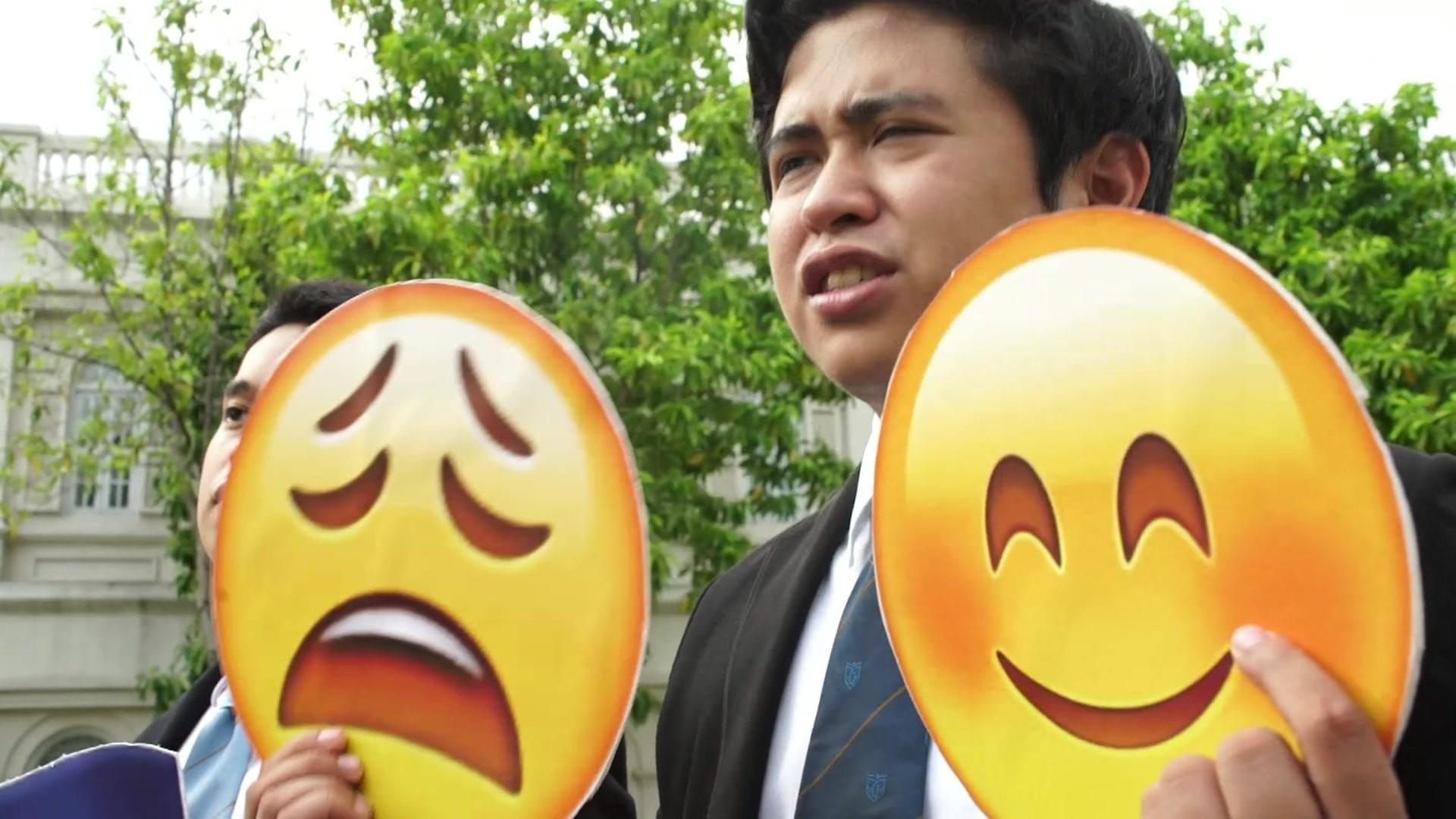
- Published2 May 2016
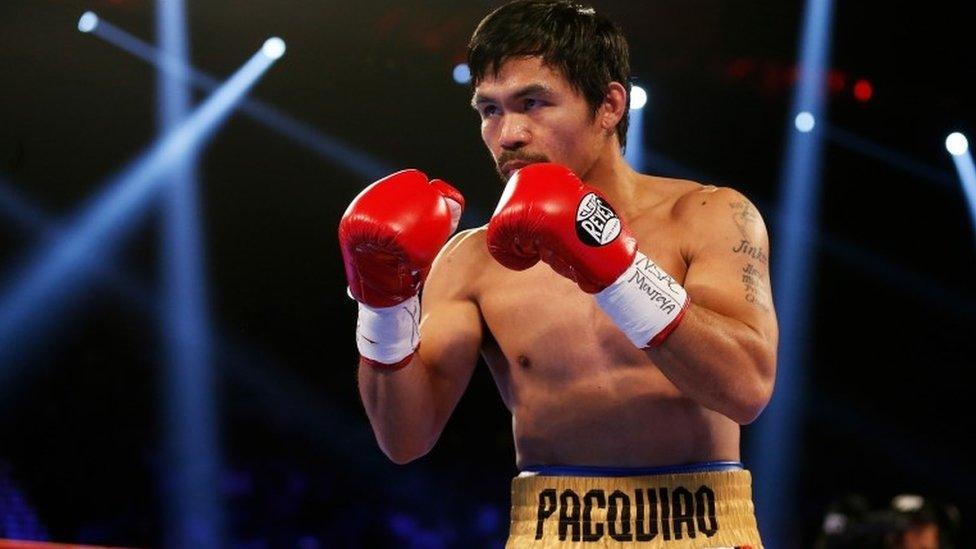
- Published29 April 2016
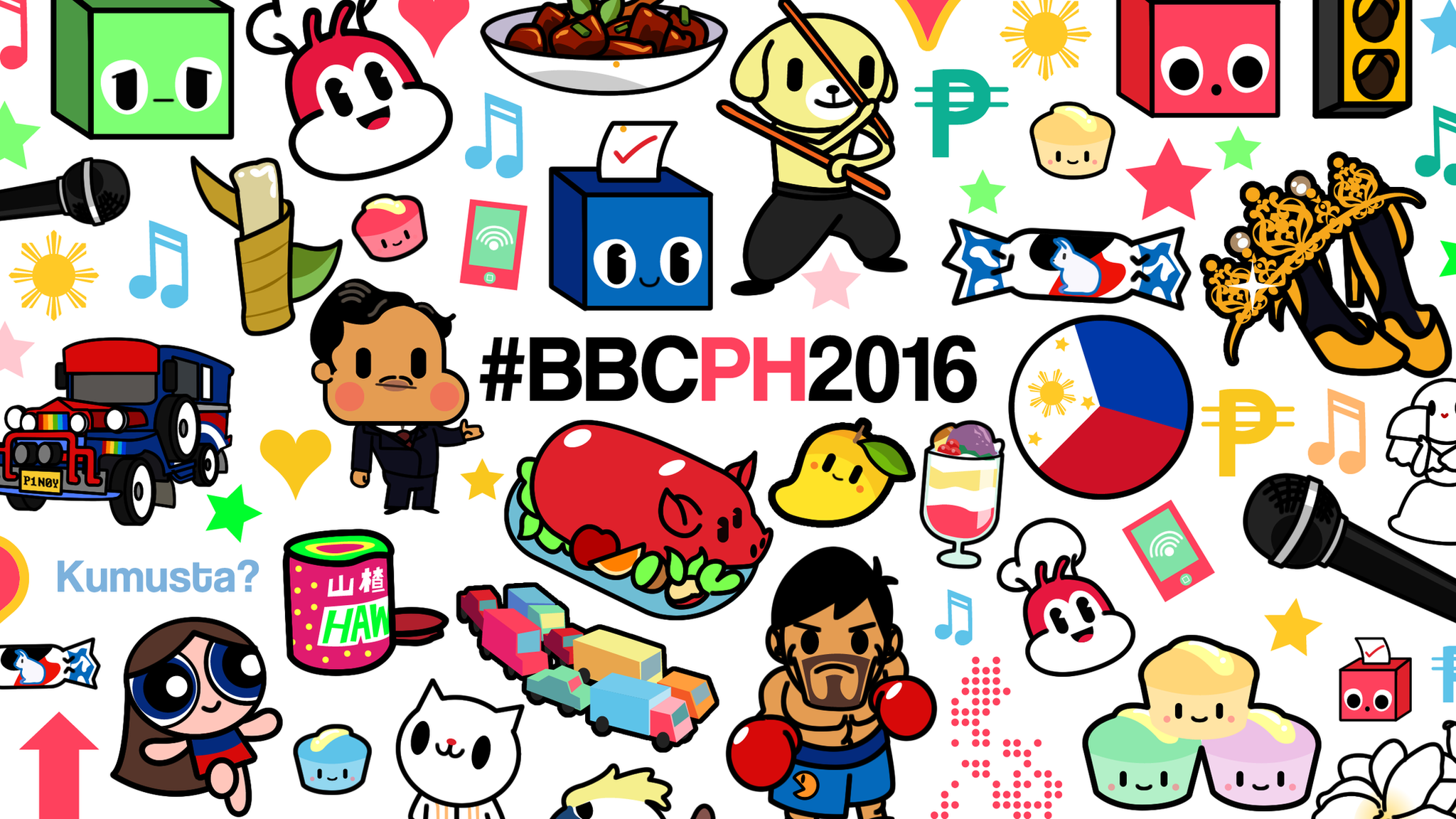
- Published11 April 2016
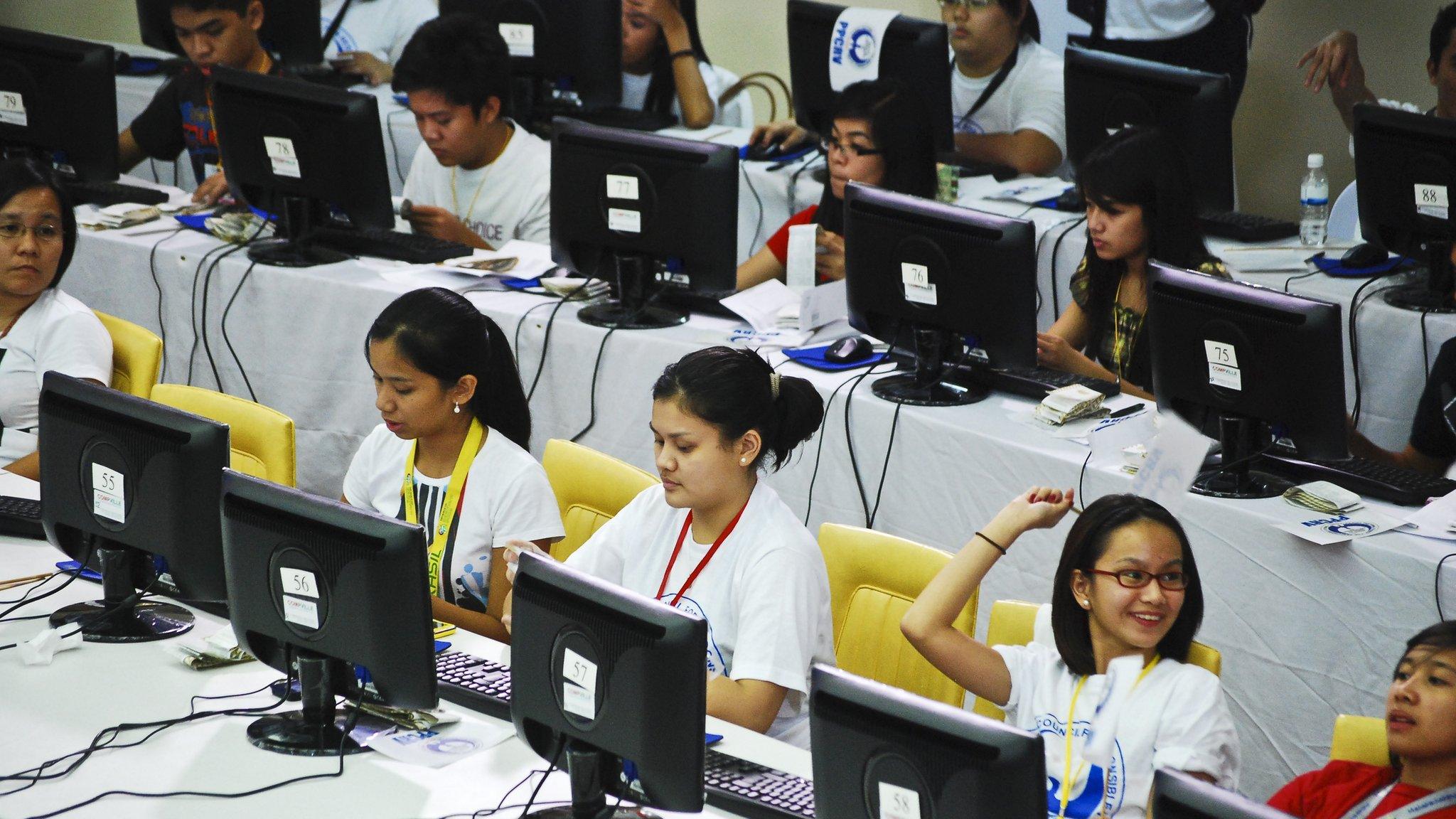
- Published5 July 2023
